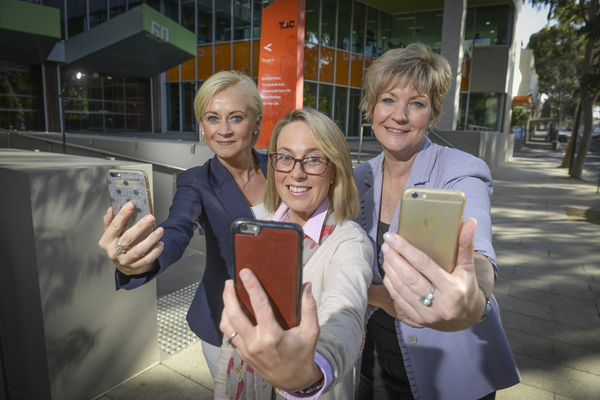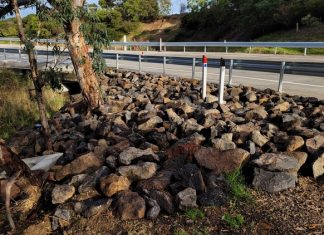
A Geelong West woman has overcome six weeks comatose with a brain injury to assist in the development of technology for rehabilitating road accident victims.
Katherine Johnston had to relearn basic tasks after her own car crash, which left her a client of the Transport Accident Commission (TAC) and Guide Dogs Victoria.
Eight years later she has helped unveil iReach, an app for patients to communicate with rehabilitation workers and store vital information during the healing process.
Ms Johnston used a TAC-supplied iPad to develop the app with rehabilitation providers during her long road back toward independence.
The TAC last week announced a $49,000 grant for Guide Dogs Victoria to continue developing iReach for the use of other accident victims.
Some of app functions include personalised messaging between users and rehabilitation providers, sharing and communicating client updates, storing appointments and care instructions, a GPS function for users’ navigation, and automated reminders of appointments.
The app also provides audio and visual assistance for users, including video guidance for therapy tasks.
“I have trouble remembering important details and my iPad became my third arm to help me when I was out by myself,” Ms Johnston explained.
“My carers and my therapists use it to leave notes for each other or to easily share information.”
TAC head of independence Liz Cairns underscored the value of the app when she helped Ms Johnston unveil it at the TAC’s Geelong headquarters last week.
“Regaining quality of life and independence is a crucial part of recovery following a serious injury and supporting these projects helps our clients get their lives back on track,” Ms Cairns said.







